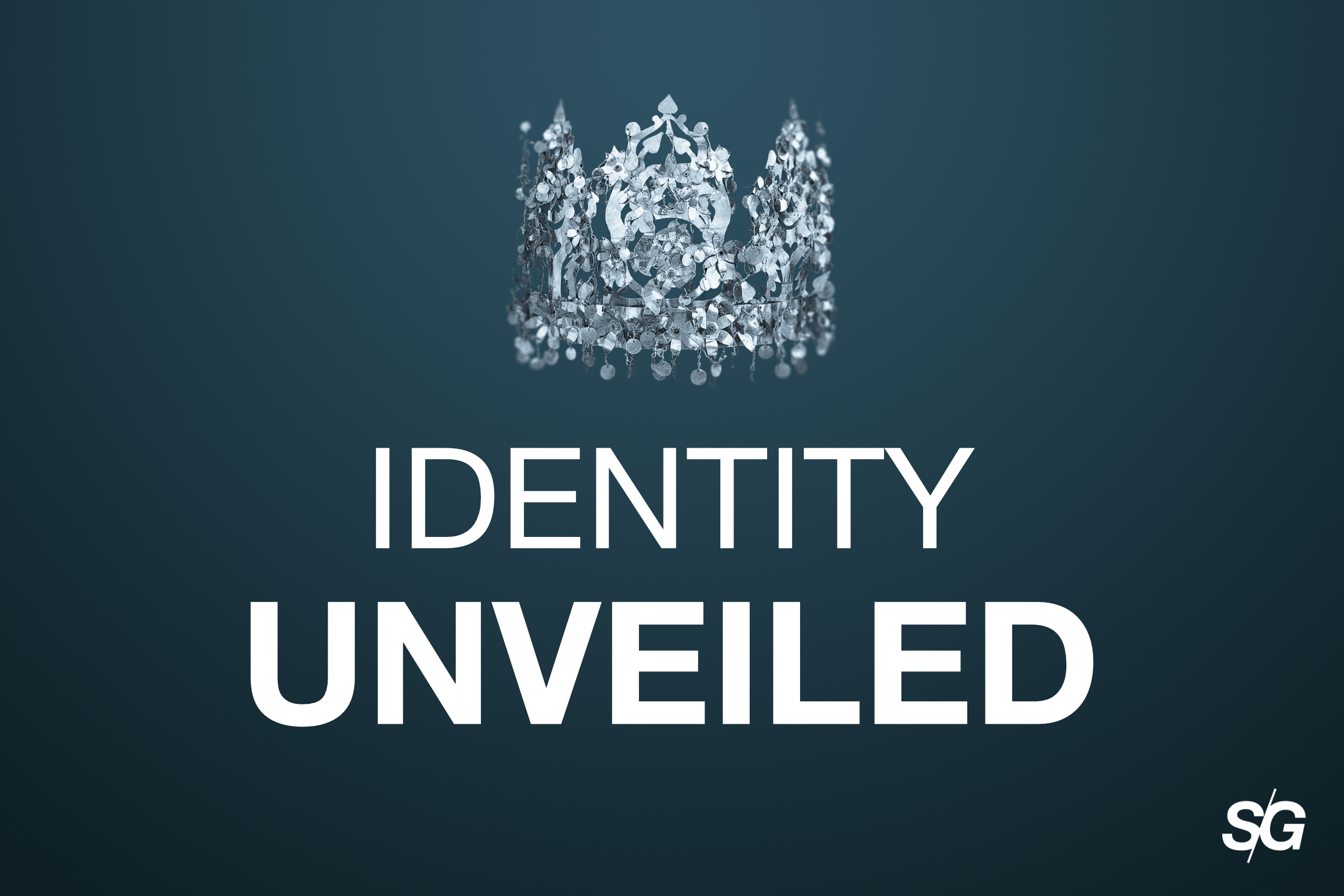Also Available On






Podcast Transcript
FORGIVENESS & IDENTITY
So let’s talk about the hard stuff.
Forgiveness. Not easy, right? And what does it have to do with identity? In my opinion, everything, and I’ll explain why in this podcast.
Against Whom?
First, let’s discuss forgiveness against whom. Is it God? Is it yourself? Is it other people?
Let’s clarify something very important. If you are telling yourself you need to forgive God, then please let me address an underlying assumption that may help in challenging this belief.
To say we need to forgive God, then it assumes He has done something wrong. It means He is guilty of something. We confuse what He has allowed to occur in our lives with the fact that we think He has actually done something wrong. There is very much a distinction.
God doesn’t do wrong and is incapable of doing so by His very nature. Now, if you’re struggling because He has allowed something to occur in your life, I get it, but that’s not the same! I encourage you to lean heavily into Him and find out who He is. We tend to equate God’s goodness to our favorable circumstances, and this is simply not how Christianity works. We live in a fallen world with horribly fallen people, ourselves included! When we feel like God has held out on us, then we simply didn’t know Him well enough to know otherwise!
If you would like to listen to a podcast that addresses this directly, please go to my website and locate my April 19, 2020 podcast entitled “Where Is God? Your Identity Depends On It”.
So we don’t need to forgive God because He is incapable of fault of any kind.
In conjunction with this concept is the second part of my book, Identity Unveiled, when I pose the question that Jesus asks Peter in the New Testament: Who do you say that I am?
One of the most important answers is whether or not you think God is holding out on you. We usually think He is doing that when tragedy, hardship, trial, or trauma come our way. Is He big enough to have prevented that hardship? Of course He is. But there is something much bigger at stake: our beliefs to be grounded in truth, not what we think or perceive; and the glory that comes from our having not just lived through something hard, but our ability to thrive on the other side of it. And the purpose: to ultimately give Him glory in it all.
I encourage you to get to know God better. Not as a check list item, but as a holy Entity who wants you to Him better than anyone else.
—-
What about forgiving yourself?
Please ask yourself the following question:
Have I done something wrong? Answer honestly. If so, please go to God and confess the wrongdoing. That’s the first step. He is ready and eager to forgive you!
The hard part is now going to the person or persons to whom your wrongdoing was against and apologize.
Whether they choose to forgive you is up to them. You can only do your part on your side of the equation.
Don’t assume that reconciliation is needed, which also takes two people. You can apologize to God and others whether the other components occur or not. This releases you from guilt.
Anyone can get hooked on the cycle of self condemnation for not living up to expectations. But know and recognize this distinction: The Holy Spirit is in your life to convict and then cast aside (Psalm 51). It’s the father of lies who wants us to stay on the wheel of self condemnation that keeps turning and turning in our minds. Satan condemns and continues. The Holy Spirit convicts and then acquits.
If you are struggling to be assured of the forgiveness of your sins, please meditate on Psalm 103:12 until the words sink into the deepest recesses of your heart and mind.
We’ve discussed forgiveness for God – which isn’t possible – and forgiveness for ourselves. Now what of forgiving others?
I’ve had to forgive people who, I believe, legitimately have wronged me. I’ve also had to forgive people who think they haven’t legitimately wronged me!
An explanation of what forgiveness IS and what forgiveness is NOT is required.
Forgiveness is NOT
- Forgetting (your brain can’t forget)
- Minimizing (it wasn’t that bad)
- Denying (ignoring the wrongdoing)
- Condoning (nothing bad happened)
- Excusing (they did this because______)
- Condemning (they need to know how they have wronged me)
- Seeking justice or compensation
- Reconciling (takes both)
- Trusting (must be earned if it has been violated)
Types of Forgiveness
First, it’s a decision. What does this practically look like? Even though you may still be angry or bitter, you are choosing to / deciding to forgive without seeking revenge or behaving in a way that gets even or lashes out. This decisional forgiveness is simply an intention and not a behavior.
Secondly, emotional forgiveness means to emotionally work through the offense that results in neutralizing your negative feelings.
From a physiological standpoint, science informs us that holding on to anger and bitterness increases risks for high blood pressure, heart problems, and stroke. Not only that, it lowers our immunity to fight disease, increases the production of cortisol, known as the stress hormone, and causes dysfunction with basic physiological and psychological wellness impacting sleep, depression, anxiety, rumination, and even has been shown to shrink the brain!
So the question becomes: “Why wouldn’t you forgive?” if you knew you were impacting your physical and emotional health in these significant and chronic ways?
Forgiveness IS
The very first step is to decide to forgive even if your emotions aren’t there yet!
You make the choice to not act your hurt. To emotionally forgive, the very first step is to unpack the hurt. Ask yourself these questions:
- What did the person do to me?
- How did this cause anger or pain?
This important step – as you can see from what forgiveness is not – is authenticity in how you were wronged and the feelings you have had because of the injustice. It’s not minimizing, condoning, excusing, reconciling, or trusting, denying.
It’s simply looking at the offense and being honest about what it was and how it affected you. Here’s is an acrostic that is helpful:
H.O.P.E.
H. – Honesty with yourself. Honesty with God. If the person who offended you is desirous in meeting with you, and your relationship is such that the person is willing and open to having an honest conversation, then that is wonderful. If not, be reminded that you can forgive the person whether or not they are willing to meet with you or hear your side (this is out of your control, but the good news is that forgiveness is not contingent on their presence!). As mentioned previously, forgiveness can take place from your side of the equation even if reconciliation is not an option. I have done this in a relationship I used to have.
O. – Other focused simply asks if you are willing to put yourself in their proverbial shoes to replace your negative emotions with more neutralized emotions. For example, is there a possibility that, through sympathy or empathy, that you could possibly see their point of view? Is there a bigger issue going on in their life that helps you make sense of why they offended you? Again, it’s not excusing, but simply providing some larger understanding for the other person.
P. – Purpose to forgive. Write it down. “Today I forgive ________.”
E. – Expect to move forward, after disclosing honesty and replacing negative emotions with positive emotions.
What Is Reconciliation?
It is paramount that you understand that you can forgive, regardless of the other person’s admittance or apology!
What is needed for reconciliation? Simply put, admittance (ownership of behavior), apology, repentance (a turning away from behavior(s) that have damaged the relationship, and trust.
When trust is broken, trust must be earned. It is a separate issue from forgiveness! There is no fast process in regaining trust. As I mentioned before, you can forgive without reconciling or trusting. And you can certainly move forward in life by forgiving whether or not reconciling or trusting ever happens again.
Forgiveness and Identity
What does forgiveness have to do with walking in your God-given identity? In my opinion, everything!
I want you to think in two dimensions: long term and broadly. First, the longer you hang on to anger, it will become a burden in your daily, weekly, monthly, yearly, and decades. With each passing segment of time, your joy will diminish. Furthermore, your ability to trust others will be greatly hindered. If you’re not careful, not forgiving will eat away at your heart and mind leaving you void of peace and having come full circle with your life story. Furthermore – and this is a hugely personal point because of my own story of waiting so long – it keeps you in a victim status. As long as you choose to NOT to forgive, it’s you who is unable to live in victory. You walk around pointing a finger of blame, even justifiably so, that keeps you nailed to the past despite your efforts to move forward. It’s simply impossible to move forward to do so.
To connect the dots together for your understanding, God wants to use your entire life story to impact other people. As long as you choose to hang on to blame and your victim status, your story simply cannot be used for the benefit of others or for yourself because you are keeping yourself chained to the past.
Forgiveness is for YOU. I’ve forgiven people who have passed, and I’ve forgiven people who are still alive. Has reconciliation happened with the people I’ve needed to forgive? Oddly enough, no. But I’ve loosed the chain on my side of the relationship so I can move forward.
In so doing, I have greater understanding for myself and them, and am not ruminating on what could have been or should have been. I’ve emotionally detached and moved on.
What is the result of doing so?
Complete inner peace.
Coming full circle.
Consciously letting go.
Why? So God can use all of your story because someone is going to need it. He is responsible for influence and outcome.
But first things first. Who do you need to forgive today? For yourself, not necessarily for them?
Forgiveness will alleviate the physiological, emotional, relationship, and spiritual toll it takes on your heart and mind.
What holds you back? Make the decision to forgive today and walk through the step by step process. You won’t be sorry!
As a daughter or son of the King of Kings, He has amazing things to accomplish through you. Forgiveness may be the first step!
I’d love for you to learn about the steps of forgiveness in my life story as told in Identity Unveiled, Daughter of the King of Kings. Years after their deaths in 2001, I’ve had to forgive my parents for deception for my suspected biological heritage.
I’ve had to work through these steps, and I know you can too.
I’d love to encourage you in any way I can. Please feel free to email at hopeunveiled@gmail.com.
About The Author

Shirene Gentry
Shirene is a Board Certified Master Christian Life Coach through the American Association of Christian Counselors and has professional memberships with the AACC and the International Christian Coaching Association.
